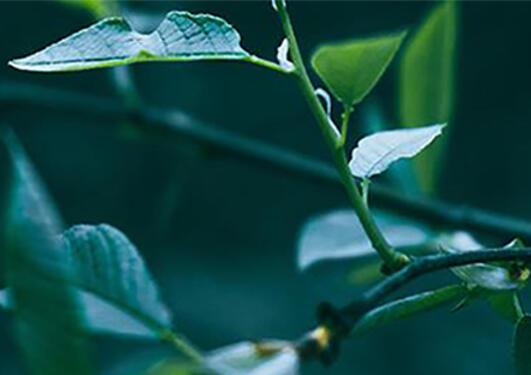Transdisciplinary RRI – AFINO summer school
This summer school is about exploring how synergies between RRI and inter- and transdisciplinarity might help navigate these challenges and increase resilience among the RRI community.

Main content
It is organised by SVT and AFINO, in collaboration with DLN.
Researchers and practitioners in the field of Responsible Research and Innovation face numerous challenges, from its concrete, meaningful application to its evaluation and the various resistance forces they meet. This summer school is about exploring how synergies between RRI and inter- and transdisciplinarity might help navigate these challenges and increase resilience among the RRI community.
We invite PhD candidates from AFINO, DLN and broader RRI/CSR (Corporate Social Responsibility) networks to join our AFINO summer school at Bekkjarvik Gjestegiveri (Austevoll). Early career and senior researchers and R&D practitioners in the field of RRI/CSR are also welcome. The application deadline is 5th July 2021 (we allow a maximum number of 20 participants).
Selection criteria: We will select candidates according to the relevance of their background (RRI/CSR) and their interest with the topics of the summer school. Participants will be informed whether they are accepted in the course shortly after the 5th July.
Responsible Research and Innovation (RRI) has become in the last years an important mode of doing research, with attention to the social, environmental and economic impacts of research and innovation processes, by encouraging reflexive, inclusive, responsive and anticipatory practices. However, RRI researchers and practitioners are facing challenges at many levels: how to concretely implement RRI in meaningful, responsible ways? How to evaluate RRI and its short- and long-term impacts? How to navigate the various sources of resistance to RRI, for instance disciplinary traditions which RRI is not entirely congruent with, or the problems of justifying and legitimising this extended mode of doing research?
Structure of the course
After more than a year of online lectures, courses and workshops, this summer school will be exclusively held ‘in real life’, where being, thinking and discussing together in various formal (lectures, group work…) and informal, creative settings will be given special attention. In particular, practical and experiential activities will be planned as an integral part of the summer school.
Prior to the summer school, participants will be provided with a compulsory reading list. Drawing from this reading list, the course work will be split between lectures, focusing on what inter- and transdisciplinarity means for RRI researchers, interspaced with creative group work by the participants.
Participants will be assigned to groups of people with diverse disciplinary backgrounds. On the first day, each group will be assigned an RRI challenge (related to the concrete implementation of RRI, or methods around RRI, or the evaluation of RRI), and over the five days, they will work in an interdisciplinary way on conceptualising and representing this RRI challenge in a creative format (text, maps, short videos, illustrations, diaries, podcasts…). Groups will be supported by the teaching team, and the practical and experiential activities will support this creative group work.
Over the summer school, the days will be organised around lectures, practical and exercises with inter- and transdisciplinary concepts and tools, and concrete examples of RRI challenges in ongoing projects. The groups will have time to creatively represent their challenge in the format of their choosing.
On the last day, groups will present their conceptualised and represented RRI challenge for feedback by the other participants and the teaching team.
The preliminary programme is as follows (morning programme in first row, afternoon programme in second row)
| Monday | Tuesday | Wednesday | Thursday | Friday |
| Arrival | Lecture on inter-/trans-disciplinarity Related group activity | Lecture on inter-/trans-disciplinarity Related group activity | Lecture on inter-/trans-disciplinarity Related group activity | Presentation from the groups and course evaluation |
Introduction to the summer school Round table + expectations Presentation of the RRI challenges and constitution of groups | Lecture on the challenges of the concrete implementation of RRI Group work on assigned challenge | Lecture on the challenge of participatory methods in RRI Group work on assigned challenge | Lecture on the challenge of RRI evaluation Group work on assigned challenge | Departure after lunch |
Teaching team so far includes:
Anne Bremer, Centre for the Study of the Sciences and the Humanities (SVT), University of Bergen (anne.bremer@uib.no), leader of the AFINO Research School.
Erik Thorstensen, OsloMet, leader of the AFINO WP4 - Building blocks for enhanced societal responsibility.
Arnt Fløysand, Western Norway University of Applied Sciences, leader of the AFINO project Responsible innovation in the Norwegian salmon farming industry.
Roger Strand, Centre for the Study of the Sciences and the Humanities (SVT), University of Bergen, and the Centre for Digital Life Norway (DLN).
Anders Braarud Hanssen, OsloMet and the Centre for Digital Life Norway (DLN).
Jean-Paul Vanderlinden, CEARC and Université de Versailles Saint-Quentin en Yvelines, France.
Organiser
Anne Bremer, Centre for the Study of the Sciences and the Humanities (SVT), University of Bergen (anne.bremer@uib.no), leader of the AFINO Research School.

Do not hesitate to contact the organiser if you have any questions!

